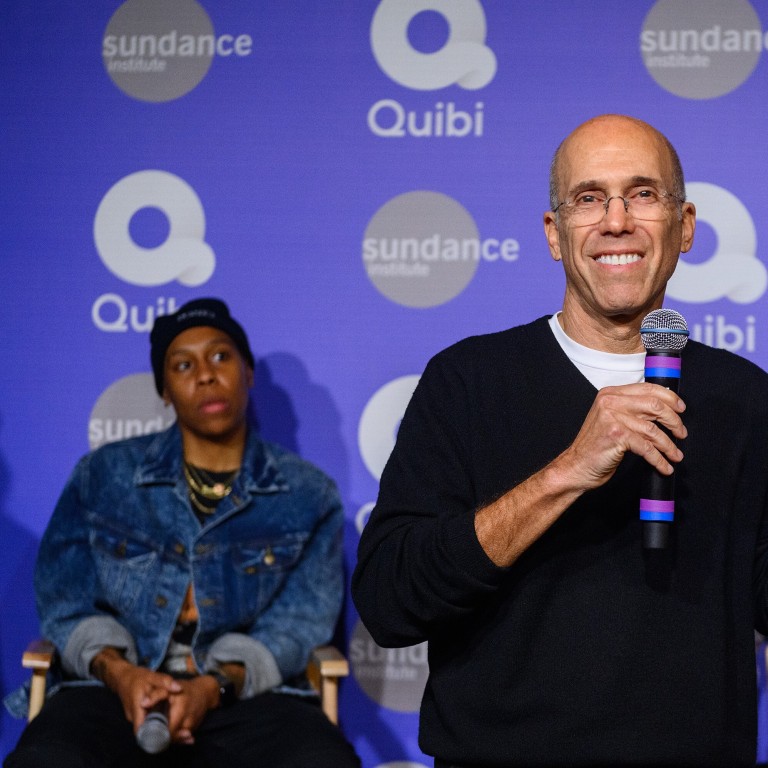
Jeffrey Katzenberg’s Quibi will close down in one of Hollywood’s biggest flops
- The swift demise represents one of the entertainment industry’s most dramatic flops
- Quibi was backed by money from giants of media and finance, including Walt Disney
Quibi Holdings, the short-video upstart founded by movie mogul Jeffrey Katzenberg, won’t have a Hollywood ending.
The company announced Wednesday that it plans to wind down operations and sell its assets after failing to attract enough viewers. After debts are paid, any remaining funds will be returned to investors, who put up US$1.8 billion to launch the ambitious start-up.
“Our failure was not for lack of trying; we’ve considered and exhausted every option available to us,” Katzenberg and Quibi Chief Executive Officer Meg Whitman said in an open letter.
The swift demise represents one of the entertainment industry’s most dramatic flops. Quibi’s app, which launched in April, was meant to showcase engaging short-form videos with big stars. It also used technology that made it easy for viewers to see shows on their phones vertically or horizontally.
Quibi was backed by money from giants of media and finance, including Walt Disney Co., AT&T’s WarnerMedia and Goldman Sachs. It also attracted ad money from big marketers such as Walmart. The idea was to entertain people during commutes and other dull moments – like a wait at the dentist’s office.
But Covid-19 meant there were fewer of those moments to be had. The app also couldn’t play on TVs initially, limiting its appeal to home-confined couch potatoes.
Douyin short video rival WeChat Channels tests live-streaming function
“The circumstances of launching during a pandemic is something we could have never imagined, but other businesses have faced these unprecedented challenges and have found their way through it,” Katzenberg and Whitman said. “We were not able to do so.”
Subscribers will be notified about the final date they can access the service, the company said.
Quibi had attempted to regroup. It revamped some of its programming, focusing on what resonated with subscribers, people familiar with the matter said in May. Its programs are sorted into three groups: movies told in chapters, episodic unscripted programs and so-called daily essentials.
Daily essentials, brief news updates that recur daily, have been less popular, Katzenberg told The New York Times earlier this year. But the service received two Creative Arts Emmys for a police drama called “#FreeRayshawn.”
Katzenberg and Whitman said they ultimately exhausted all their options. The Wall Street Journal previously reported on the plan to shut down, saying that Quibi had tried to sell itself. The company expects to return US$350 million to investors.
“We have reluctantly come to the difficult decision to wind down the business, return cash to our shareholders, and say goodbye to our colleagues with grace,” the executives said in the letter. “We want you to know we did not give up on this idea without a fight.”

